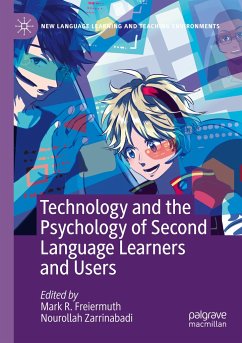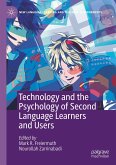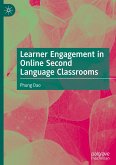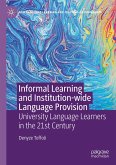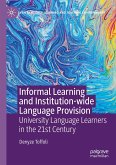This edited volume brings together large-scale research as well as case studies from a range of geographical contexts and represents a variety of educational settings involving second language learners and users. Its aim is to explore the interrelated issues of psychology and technology use in second language learning settings as well as in more autonomous environments. As language learning professionals continue to devote more time and attention to making various technological tools an integral part of the classroom, it is just as important to understand the influences that these tools have on the psychological state of the learners who use them. In consideration of this objective, the volume examines factors such as learner attitudes and motivation, emotion and behaviour, and the cognitive processes that are at play in the minds of the language users. This volume will be of interest not only to language teachers but also to researchers working in second language acquisition(SLA), applied linguistics, and educational psychology.
"The groundbreaking and innovative volume fills a significant gap in exploring the ways in which technology affects the psychological state of second-language learners and users. ... The book is of pedagogical value for language teachers. ... It will attract a large audience among postgraduates, researchers, and language teachers who are interested in educational technology, language learning, and teaching and learner psychology." (Yang Chunhong, Frontiers in Psychology, frontiersin.org, March 30, 2021)
"This book clearly targets language teachers and researchers, providing a myriad of examples of technologies being used as well as language learning situations. ... This volume is a helpful stepping-stone toward greater understanding of these issues and will be a volume educators and researchers draw from for years to come." (Alyssa Wolfe, Language Learning & Technology, Vol. 25 (1), February, 2021)
"This book clearly targets language teachers and researchers, providing a myriad of examples of technologies being used as well as language learning situations. ... This volume is a helpful stepping-stone toward greater understanding of these issues and will be a volume educators and researchers draw from for years to come." (Alyssa Wolfe, Language Learning & Technology, Vol. 25 (1), February, 2021)

